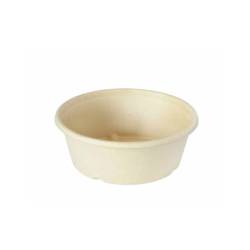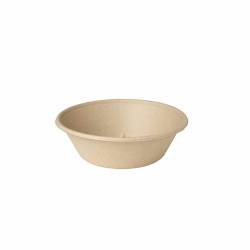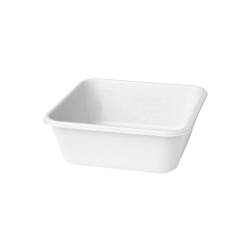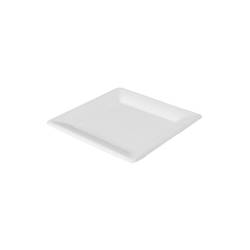Cellulose pulp: components and processing
When it comes to environmentally friendly products, cellulose pulp is taken as a yardstick to measure composting and biodegradability factors. It is a totally natural product with its main component in wood, consisting of 45 percent cellulose, 30 percent hemicellulose, 23 percent lignin, and 5 percent various extractables, including resins, terpenes, and fatty acids.
Pulp is obtained, by various processes, from log wood or chips, bits of wood made from by-products in lumber processing; if whole logs are processed, they are split or ground after being debarked. Work is ongoing to improve pulp extraction processes, with the goal of making them more eco-friendly and eco-conscious. The latest breakthroughs point to the replacement of chemicals with bacteria and treatment called bleaching with oxygen in the presence of catalysts.

Cellulose pulp vs. single-use plastic
Cellulose pulp is, as mentioned, an all-natural, compostable material with innumerable merits, including resistance to high temperatures (over 200° C), a characteristic that gives the possibility of using it for beverages or hot dishes. This peculiarity does not affect composting, a process on which moisture and the presence of enzymes and bacteria also act. For the decomposition of materials, the EN 13432 standard takes cellulose itself as a reference: from the multiple experiments analyzed, pulp dishes degrade in even shorter times than those required by the standard .
Thus, pulp products meet technical and environmental parameters aimed at special attention to the derivation, processing and disposal of materials. On the other hand, the European Parliament has, by 2021, approved a ban on the consumption of those single-use plastic items-dishes, cutlery, straws, Q-tips, drink mixers, and balloon sticks-that make up 70 percent of marine waste. Because of this long-awaited and historic decision, which is irreversible and can no longer be postponed, venues and businesses are gearing up not to be caught unprepared.
The sustainability of pulp
The sustainability of disposables is often overlooked, so much so that the consequences that some materials can have not only on the environment but also on health are not considered; pulp products solve these problems and allow us to use them without fear, thanks to the fact that they are suitable for contact with food according to European regulations. Disposables are useful in contexts of continuous tableware turnover and provide safety in particularly crowded places, without losing quality in design and materials.
Two of the plants from which pulp is made-the ones that allow it to be classified as completely natural, of plant origin, and without any added chemical components-are sugarcane and bamboo. In recent years, the latter from furniture and construction is also becoming known and appreciated in the restaurant world. Indeed, bamboo products are lightweight, environmentally friendly and pleasant to the touch, and their fiber is 'living' and nontoxic, biodegradable and environmentally friendly. Environmentally, then, the life cycle of bamboo is not subject to intensive exploitation, making it available and beneficial to the forest ecosystem.
What pulp is used for
Returning to pulp, it is mainly used for the production of plates, containers and some types of glasses, suitable for the microwave oven and sometimes for the conventional oven. Pulp food packaging is convenient and 'stylish,' practical and durable, as well as designed specifically for sectors such as delis and delicatessens, diners and pizzerias by the slice.

Duni: a name, a guarantee
One of the dominant companies in this context is Duni, once known only in Sweden as a manufacturer of paper cups and napkins, now of international prominence, innovative and eco-conscious, at the level of tableware and take-away solutions. Dunicel®, back in 1965, Dunilin®, Dunisilk® and Evolin® are patented brands recognized worldwide by those who have always focused on the recyclable and the renewable, thus on pulp but not only. Another eco-sustainable material, for example, is bagasse, composed mainly of the plant's cellulose, the fibrous residue of sugar cane squeezed in the mill to extract its juice.
Good for Mood and Blue Mission
Duni's goal is to create the right 'Good For Mood,' that is, to make convivial environments stimulating, enhancing any opportunity to enjoy food and beverages and transforming them into memorable experiences; the Swedish company thus goes beyond the concept of simply providing plates and cutlery, tablecloths and napkins, stimulating the five senses within inviting and innovative frames.
At Duni, the commitment is to operate as resource-efficiently and responsibly as possible, considering quality and safety, innovation and environmental standards hand in hand, always with ethical and environmental sustainability in mind: in two words, the'Blue Mission'.

Duni's brands
The brands that define Duni's eco-friendly program, launched in 2010 and passing through ISO 14001-certified production sites, are:
-
FSC® (Forest Stewardship Council): this program certifies that most products, manufactured from wadding, are made from wood fibers from responsibly managed forests.
-
OK COMPOST: with particular reference to plain napkins, but increasingly to decorated ones, it certifies that the reported models comply with the European standard EN 13432 and are therefore compostable in industrial settings.
-
SWAN: Nordic ecolabel that guarantees that the products concerned comply with very strict criteria for climate and environmental protection.
Then there is an entire range of table linens, ecoecho®, which aims to meet the needs of HoReCa professionals by combining style, quality and durability.
Duni pulp on RG Mania
A wide range of Duni branded assortment is featured on RG Mania, specifically in pulp:
-
bowls: for buffets, catering or why not home use and therefore salads or side dishes, but also soups and hot first courses;
-
soup bowls: trendy and smart, equipped with a lid to close them conveniently, for even more convenient and practical take-out: in fact, they allow for quick meals in the park or on the street, as well as at the office desk;
-
salad bowls: for salads or soups, then as a soup plate, or as a serving dish for snacks such as olives, croquettes and cheese cubes;
-
plates: elegance and restraint, comfort and durability for all the settings you desire;
-
containers: items that are increasingly found in American-style food trucks or temporary markets, services that allow take-away consumption while preserving the organoleptic characteristics and not altering the taste of the food they contain.
Each product can be matched with the appropriate lid, where not already included; further proof of Duni's attention to detail, not only with regard to pulp, but also to the whole world of disposables.




